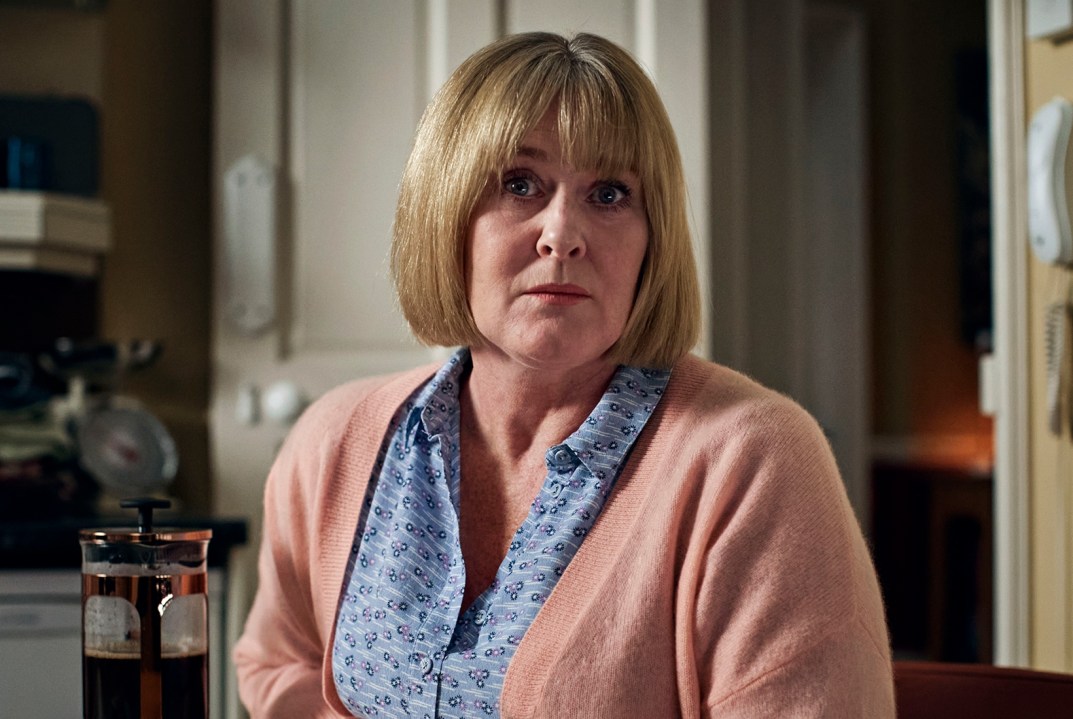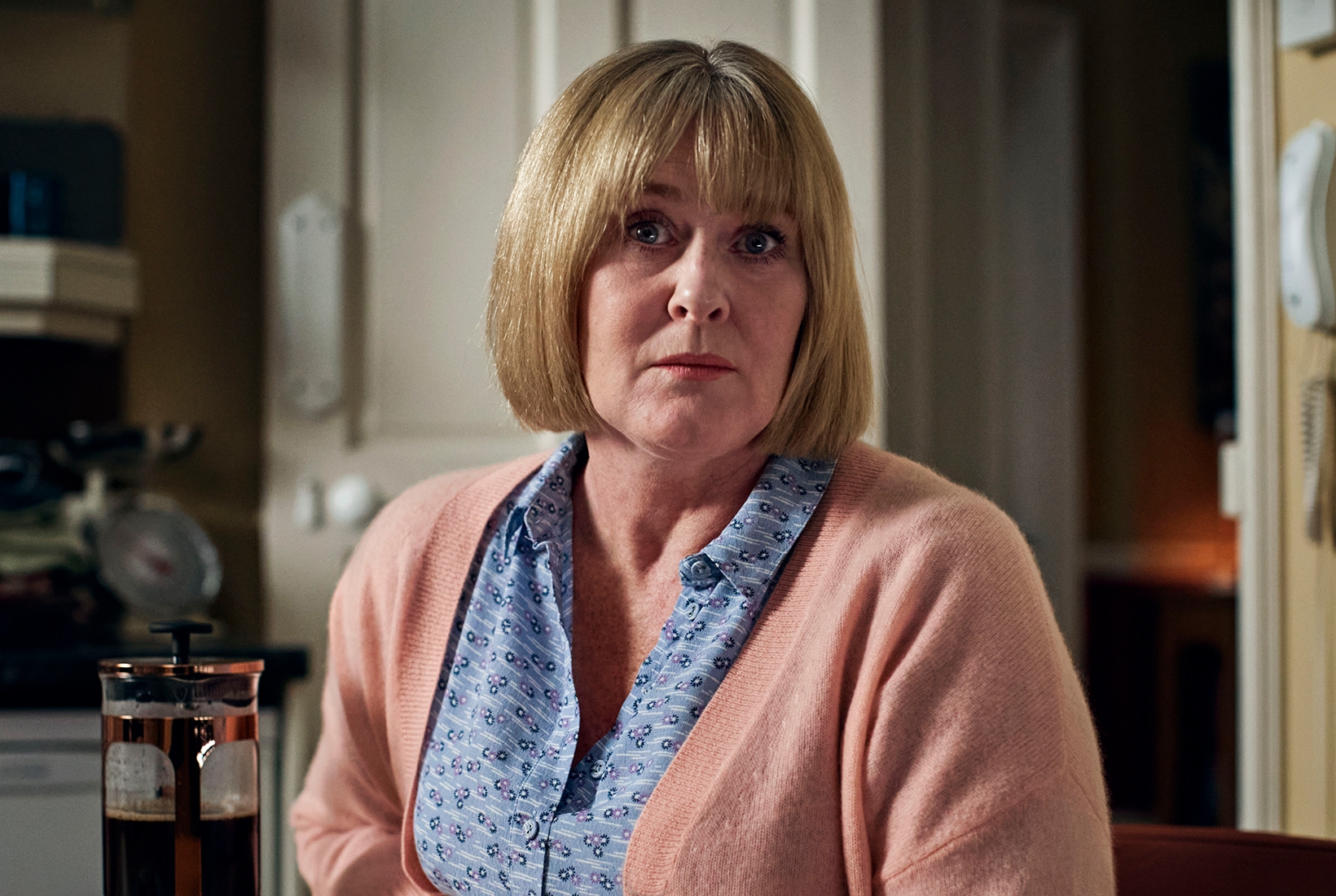The big mistake people make with Alan Bennett is to conflate him with his fellow Yorkshireman David Hockney. But whereas Hockney’s art is generous, warm, bright, life-affirming, Bennett’s is crabbed, catty, dingy, insinuating. The fact that the BBC-led establishment keeps telling us he’s a National Treasure tells us more about the BBC-led establishment than it does about Bennett. Bennett is typical of the English intelligentsia Orwell anatomised in his ‘The Lion and the Unicorn’ essay: ‘It is always felt that there is something slightly disgraceful in being an Englishman and that it is a duty to snigger at every English institution, from horse racing to suet puddings.’
I’d forgotten quite how much I disliked Bennett till I was reminded by the BBC’s revival, this week, of his universally acclaimed 1980s monologues Talking Heads. No Thora Hird this time, obviously. But lots of really top-notch thespian talent — Harriet Walter, Sarah Lancashire, Martin Freeman, etc — going through their paces, dusting down their special accents, meaningful expressions and pregnant pauses, paying homage to the master (now 86).
Bennett despises his characters and the Englishness they embody more than he loves them
The one I particularly hated was one of the two new ones he has written, ‘An Ordinary Woman’. This begins with Lancashire, as an apparently amiable, down-to-earth Yorkshire mum, describing the moment when her 15-year-old son asks her to inspect a worrying spot on his penis, and she realises that she actually finds him sexually attractive.
Is this is a common phenomenon? Personally, I found it creepy and weird — and rather resented having to spend half an hour of life listening as, on Bennett’s behalf, Lancashire riffed on this bizarro theme. It’s a notion that Kate Bush sort of touched on in her song ‘Infant Kiss’, but at least Bush has the excuse of being away with the fairies, poetically oblique and oddly innocent. With Bennett, on the other hand, you get far too much prurient detail: Mum wondering whether on the other side of the partition wall dividing their bedrooms her 15-year-old is masturbating — and getting aroused by the idea.
They say that as civilisations collapse, as ours is now, the intellectual elite become morbidly obsessed with the decadent and perverse. You’d really need to be a BBC commissioning editor, I think, or a theatrical luvvie like the director who oversaw this project — Nicholas Hytner — to greet a TV monologue half-celebrating, or at least not wholly condemning, maternal incest with anything other than a ten-foot bargepole.
And I’m not buying the defence that Bennett is merely inhabiting the minds of the marginalised and the downtrodden. There’s one of his throwaway lines at the end — except, of course, with Bennett nothing is throwaway — where the mother takes a pill to cure her condition because it ‘makes you indifferent to one another like families normally are’.
But are families normally ‘indifferent to one another’? Only in the imaginations of the jaded, the sick and the Marxist, I’d say. Perhaps Bennett himself had a disappointing upbringing which he never got over, I don’t know. But if I were his psychiatrist I’d find reams of material: the querulous, gay, mentally ill character in ‘A Chip in the Sugar’ (played by Bennett himself in the original version and in this one by Martin Freeman) all but imprisoned with his mother, like Tony Last forced to read Dickens to Mr Todd for all eternity; in ‘Soldiering On’, the widow and doting mother played by Harriet Walter, still utterly besotted with the vile son who won’t visit her and who has reduced her to a joyless, penurious existence gorging on daytime TV.
‘I wouldn’t want you to think this was a tragic story. I’m not a tragic woman. Not that type,’ Walter’s indomitable, stiff-upper-lipped Englishwoman tells us at the end. But the irony is bitter and unconsoling — and my feeling is that Bennett despises his characters and the Englishness they embody more than he loves them. Take the relish with which he sets up the character of the antique dealer (Kristin Scott Thomas), who spends the first half telling us what a good eye she has and how wise she is to all the tricks of the trade — and the second ruing the potential millions she has lost giving away for a song a Raphael drawing her expert eye failed to identify. Her mistake, of course, was to have been a hard-working decent member of the English bourgeoisie. Had she been a smelly old tramp lady in a van, Bennett would have treated her to a hagiography.
Don’t get me wrong. I’m fully alive to the charm and wit and fluency of Bennett’s writing, the way he captures so perfectly the tics and cadences of spoken English (though he’s better at doing Yorkshire folk than he is his somewhat caricatured upper middle classes), and I do think The History Boys, The Madness of George III and Wind in the Willows make great nights out. But the politics, the bitchiness and the misanthropy underneath are pure poison.








Comments